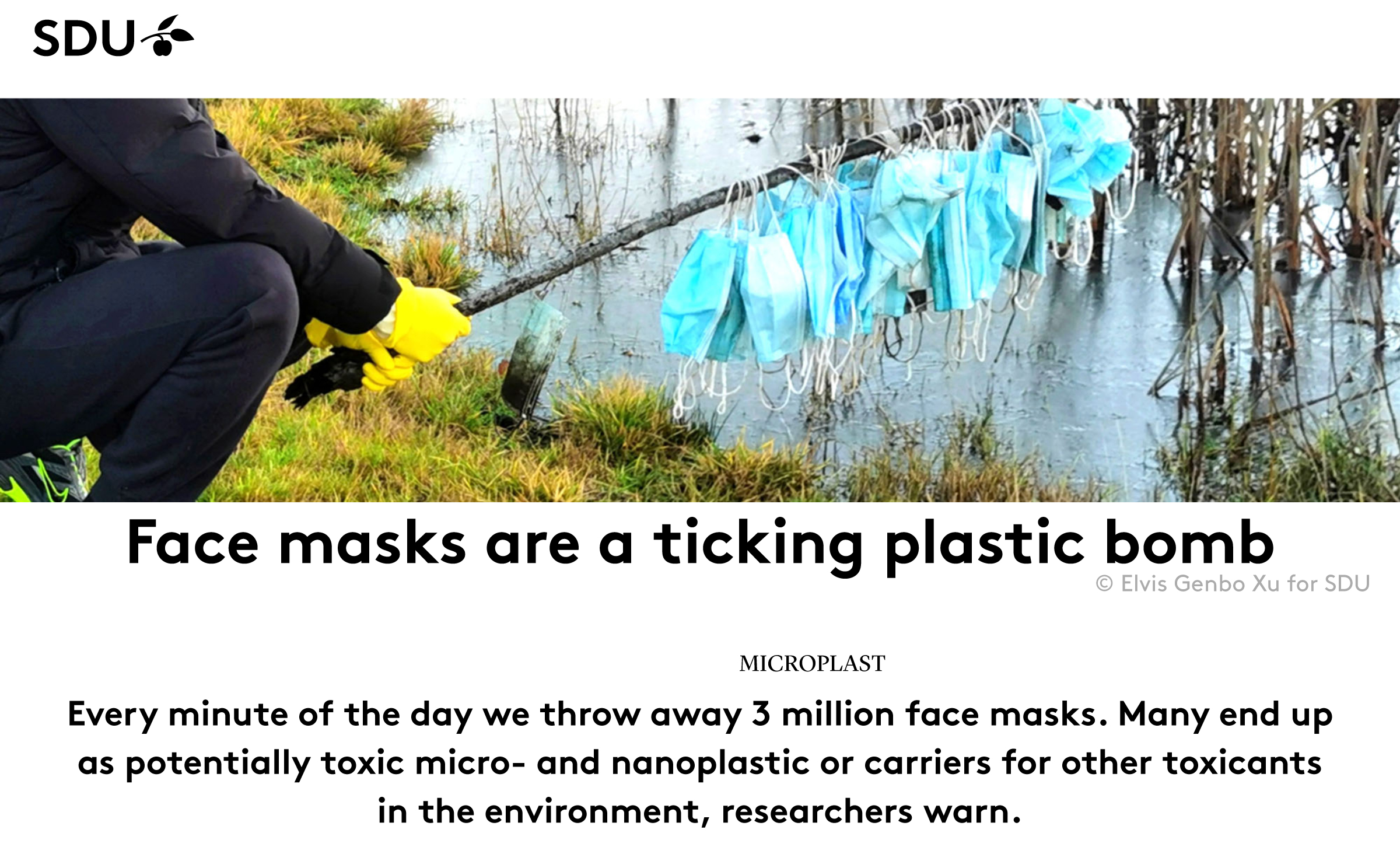Recently, the trendy response in North Carolina to plastic waste pollution in the Indian Ocean was to outlaw plastic straws here, or barring that, shame or compel restaurants to virtue-signal not offering their patrons straws. Greensboro held a “No Straw November,” for instance. Restaurants from Charlotte to Wrightsville Beach inconvenienced customers in solidarity.
Now, however, the trends in North Carolina and many places around the world has been to force or pressure restaurant patrons — people everywhere, actually — to wear a face mask. Or two. Or what about … three?
Oh dear.
Research from the University of Southern Denmark warns:
- People are discarding 3 million face masks per minute, and most are “disposable face masks made from plastic microfibers … that cannot be readily biodegraded but may fragment into smaller plastic particles, namely micro- and nanoplastics” that particularly threaten habitats and ecosystems
- The threat from disposable face masks is a “greater concern than plastic bags”
- The “disposable masks can end up in the environment, freshwater systems, and oceans, where weathering can generate a large number of micro-sized particles (smaller than 5 mm) during a relatively short period (weeks) and further fragment into nanoplastics (smaller than 1 micrometer),” and the newer masks are worse
The research characterizes the masks as a “ticking plastic bomb.”



